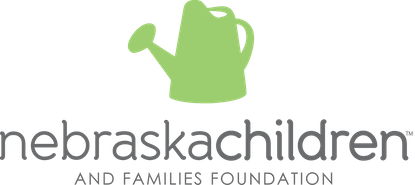Parent-Child Interaction Therapy (PCIT)
Parent-Child Interaction Therapy (PCIT) is an empirically-supported treatment for children ages 2 to 7 that places emphasis on improving the quality of the parent-child relationship and changing parent-child interaction patterns. One primary use is to treat clinically significant disruptive behaviors. In PCIT, parents are taught specific skills to establish a nurturing and secure relationship with their child while increasing their child’s prosocial behavior and decreasing negative behavior. This treatment focuses on two basic interactions: Child Directed Interaction (CDI) is similar to intentional play in that parents engage their child in a play situation with the goal of strengthening the parent-child relationship; Parent Directed Interaction (PDI) resembles clinical behavior therapy in that parents learn to use specific behavior management techniques as they play with their child. PCIT has several unique features which support interaction between parents and children: The therapist does not interact directly with the child and are not in the room for most sessions. Instead, two-way mirrors or cameras and ear pieces provide feedback and suggestions to parents while they are interacting with their child. The average number of sessions is 14, but varies from 10 to 20 sessions. Treatment continues until the parent masters the interaction skills to pre-set criteria and the child's behavior has improved to within normal limits.
PCIT outcome research has demonstrated statistically and clinically significant improvements in the conduct-disordered behavior of preschool age children: After treatment, children’s behavior is within the normal range. Studies have documented the superiority of PCIT to waitlist controls and to parent group didactic training. In addition to significant changes on parent ratings and observational measures of children’s behavior problems, outcome studies have demonstrated important changes in the interactional style of the fathers and mothers in play situations with the child. Parents show increases in reflective listening, physical proximity, and prosocial verbalization, and decreases in sarcasm and criticism of the child after completion of PCIT. Outcome studies have also demonstrated significant changes on parents’ self-report measures of psychopathology, personal distress, and parenting locus of control. Measures of consumer satisfaction in all studies have shown that parents are highly satisfied with the process and outcome of treatment at its completion.
Research
PCIT was developed by Sheila M. Eyberg, PhD, University of Florida.
Zisser, A., & Eyberg, S.M. (2010). Treating oppositional behavior in children using parent-child interaction therapy. In A.E. Kazdin & J.R. Weisz (Eds.) Evidence-based psychotherapies for children and adolescents (2nd ed., pp. 179-193). New York: Guilford.
Chaffin, M., Funderburk, B., Bard, D., Valle, L.A., & Gurwitch, R. (2011). A combined motivation and parent-child interaction therapy package reduces child welfare recidivism in a randomized dismantling field trial. Journal of Consulting and Clinical Psychology, 79, 84-95. doi:10.1037/a0021227
Berkovitz, M.D., O’Brien, K.A., Carter, C.G., & Eyberg, S.M. (2010). Early identification and intervention for behavior problems in primary care: A comparison of two abbreviated versions of parent-child interaction therapy. Behavior Therapy, 41, 375-387.
Callahan, C.L.& Eyberg, S.M. (2010). Relations between parenting behavior and SES in a clinical sample: Validity of SES measures. Child & Family Behavior Therapy, 32(2), 125-138. doi:10.1080/07317101003776456 PDF.File
Lanier, P., Kohl, P. L., Benz, J., Swinger, D., Moussette, P., Drake, B. (2011). Parent-child interaction therapy in a community setting: Examining outcomes, attrition, and treatment setting. Research on Social Work Practice, Only found online.

